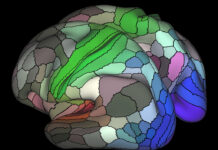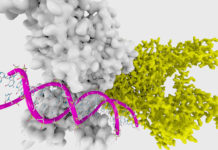The Deeper Genome: New Research Findings in Genomics and Epigenomics
In our field, there is a significant “missing heritability” between rates of “schizophrenia” in monozygotic twins and the combined reduced influence of genetic variants identified in genome-wide association studies (GWAS). The 80% figure often given as a heritability factor is somewhat misleading for students in our field who do not know how the H2 statistic is derived and various ways of deriving it. Through extensive molecular biological research of the most recent studies on monozygotic twins I have derived a theory which will make a much stronger case for socioenvironmental influences on what was previously though of in classically genetic terms.
Genetics of Bipolar Disorder
Research from the Semel Institute for Neuroscience and Human Behavior at USC finds that "The standard concept of genetic testing includes at least three...
Direct-to-Consumer Genetic Testing is Often Wrong
Direct-to-consumer (DTC) genetic testing has an “alarmingly high” 40% false-positive rate.
NIMH Funding Changes Threaten Psychotherapy Research
The National Institute of Mental Health (NIMH) is increasingly shifting its research emphasis toward attempting to uncover biomarkers for “mental diseases,” which may have dramatic consequences for research and training in clinical psychology. In an article to be published in next month’s Professional Psychology: Research and Practice, Marvin Goldfried outlines how the shift in funding priorities for psychological research is tied to the needs of pharmaceutical companies and the biological model in psychiatry.
Child Abuse/Psychosis Link Not Genetic
Although psychosis is more common in the parents of people with psychosis than those without, the difference cannot be attributed to genetics, research from...
The Failed Quest for Biomarkers in Psychiatry
A recent commentary by Ganesan Venkatasubramanian and Matcheri Keshavan notes that efforts to identify biomarkers in people diagnosed with psychiatric disorders have been overwhelmingly...
The Genetics of Depression: “Look to the Environment”
A comprehensive review of research on the genetics of depression up to 2012, published online today by Psychological Bulletin, finds "a continued lack of...
From Phrenology to Brain Scans: How Shaky Neuroscience has Influenced Courts
In “When Phrenology Was Used in Court,” Geoffrey S. Holtzman writes for Slate about the spurious use of brain science in legal cases. In the 1800’s the “science of phrenology” promised to reveal criminal psychological traits by measuring the skull and today defense teams still employ neurogenetic explanations for their client’s violent behavior.
New Study Raises Doubts About fMRI Neuroimaging Research
More than forty thousand papers have been published using functional magnetic resonance imaging (fMRI) technology to explore the brain. A new analysis of the common...
A Blood Test for Schizophrenia with 83% Accuracy?
An NBC online News article dated October 15, 2010, carried the noteworthy title New blood test may help detect schizophrenia. The article was written by Natasha Allen, a freelance medical journalist. The gist of the article is that there is a new blood test called VeriPsych which "researchers say" is 83% accurate in discriminating people who are "schizophrenic" from people who are not.
Researchers Develop New Model for Understanding Depression
Acknowledging that current depression treatments are failing many people, researchers from Michigan State and MIT have developed a new model for understanding how multiple psychological, biological, social and environmental factors contribute to depression.
Brain Imaging Reveals Psychiatric Disorders are Not Neurological Disorders
Some researchers have been arguing to reclassify all psychiatric disorders as diseases of the brain and nervous system, similar to epilepsy or Parkinson's disease. Neuroimaging research, however, reveals that psychiatric disorders appear to be distinct from neurological disorders, according to a new study published in this month’s issue of the British Journal of Psychiatry.
“The Search for Schizophrenia Genes”
MIA contributor Jonathan Leo, writing for Slate, weighs in on the research that claims to have discovered a genetic basis for schizophrenia. “We now...
Large Rigorous Study Debunks Popular Gene-Environment Theory of Depression
A large and rigorous meta-analysis fails to find support for the gene-environment interaction theory of depression.
Genetic Protection Against Schizophrenia?
On November 12, 2013, Molecular Psychiatry published online Evidence That Duplications of 22q11.2 Protect Against Schizophrenia, by Rees et al. The print version was published last month – January 2014. The idea of a genetic mutation that would protect one from schizophrenia aroused a good deal of interest and enthusiasm. The paper has added some impetus to psychiatry's claim that the condition known as schizophrenia is a genetic disease. For this reason, I thought it might be helpful to take a closer look at the study.
Why Precision Psychiatry is Not a Paradigm Shift
A letter just published in JAMA Psychiatry suggests that “precision psychiatry” is not the paradigm shift it’s purported to be by the psychiatric establishment.
“Bewitching Science” Revisited: Tales of Reunited Twins and the Genetics of Behavior
In this article I will attempt to debunk one of the great “scientific” smoke and mirrors shows of the past half century—the claim that stories of reunited separated MZ (monozygotic, identical) twin pairs indicate that heredity plays a major role in causing human behavioral differences. These stories, which are often used to sell the false ideology of genetic determinism, have entered the public imagination in a way that academic research results never could. Here I will show that these stories provide no evidence whatsoever that (as yet undiscovered) “genes for behavior” influence human behavioral development.
Ernst Rüdin’s Unpublished Family Study of “Manic-Depressive Insanity” and the Genetics of Bipolar Disorder
Although it is axiomatic in psychiatry that genetic factors are involved in bipolar disorder (manic-depression), and that they play a predominant role, there currently exists little if any scientifically acceptable evidence that bipolar disorder and other “affective disorders” are caused by disordered genes. Given almost 50 years of gene discovery claims that were not confirmed by replication attempts, we must assume by default that current gene finding claims are false-positive results as well. In the 1920s, pioneering psychiatric geneticist Ernst Rüdin decided against publishing his large family study of “manic-depressive insanity,” most likely because the results did not fit his theories of Mendelian inheritance, and failed to support his advocacy of eugenic policies.
Brain Disease or Existential Crisis?
As the schizophrenia/psychosis recovery research continues to emerge, we discover increasing evidence that psychosis is not caused by a disease of the brain, but...
The Latest News from Twin Research: The Genetic Influence on Political Voting Choices is...
There seems to be no end to illogical and even comical “findings” from MZ-DZ twin method comparisons, where the original twin researchers argue that the greater behavioral resemblance of reared-together MZ (monozygotic, identical) versus same-sex DZ (dizygotic, fraternal) twin pairs demonstrates the “heritability” of the behavioral characteristic in question. Among these we find a twin study whose authors concluded in favor of a genetic basis for being a “born again Christian” (65% heritability), another that found important genetic influences on tea and coffee drinking preferences, and still another that found that the heritability of “loneliness in adults” is 48%.
Quotations From the Genetics “Graveyard”: Nearly Half a Century of False Positive Gene Discovery...
In a 1992 essay, British psychiatric genetic researcher Michael Owen wondered whether schizophrenia molecular genetic research would become the “graveyard of molecular geneticists.”1 Owen predicted that if major schizophrenia genes existed, they would be found within five years of that date. He was optimistic, believing that “talk of graveyards is premature.”2 Owen now believes that genes for schizophrenia and other disorders have been found, and was subsequently knighted for his work. Despite massively improved technology, however, decades of molecular genetic gene finding attempts have failed to provide consistently replicated evidence of specific genes that play a role in causing the major psychiatric disorders.
Large Study Finds Epigenetic Changes Associated with Trauma Explained by Smoking
A new study suggests that epigenetic changes that have been associated with trauma may actually be due to environmental toxins.
Schizophrenia and Genetics: A Closer Look at the Evidence
“The substantial hereditary component in schizophrenia,” a pair of researchers wrote in 1993, “is surely one of the two or three best-established facts in psychiatry.” But is it really? For mainstream psychiatry and psychiatric genetics, schizophrenia is “a severe mental disorder with a lifetime risk of about 1%, characterized by hallucinations, delusions and cognitive deficits, with heritability estimated at up to 80%,” or a “highly heritable neuropsychiatric disorder of complex genetic etiology.” Many commentators have challenged these claims, and some have challenged the concept of schizophrenia itself.
Twin Studies are Still in Trouble: A Response to Turkheimer
Human behavioral genetics and its allied field of psychiatric genetics are in trouble, as unfulfilled gene discovery expectations during the “euphoria of the 1980s” have continued to the present day, leading to researchers’ “nonreplication curse” dysphoria of the 2010s. In my recent book The Trouble with Twin Studies: A Reassessment of Twin Research in the Social and Behavioral Sciences, I presented a detailed argument that genetic interpretations of the common “classical twin method” finding that reared-together MZ twin pairs resemble each other more (correlate higher) for behavioral characteristics than do reared-together same-sex DZ twin pairs are invalid because, among other reasons, the twin method’s crucial MZ-DZ “equal environment assumption” (EEA) is false.
DSM-5’s “Speculative” 2002 Diagnostic System Based On Expected Gene Findings
According to a leading group of psychiatric genetic researchers, writing in 1999, “From the perspective of psychiatric genetics, the Human Genome Project is an immense factory producing and refining the tools we will need to discover the genes that cause mental illness.” A 2002 “speculative outline” by a group helping to revise the DSM envisioned a future DSM-5 practice of classifying disorders on the basis of "the patient’s genotype, identifying symptom- or disease-related genes, resiliency genes, and genes related to therapeutic responses and side effects to specific psychotropic drugs.” A dozen or so years ago, at least some of the DSM-5 architects believed that genes would at long last be identified and would be integrated into the next version of the DSM. As we know, this did not happen.















